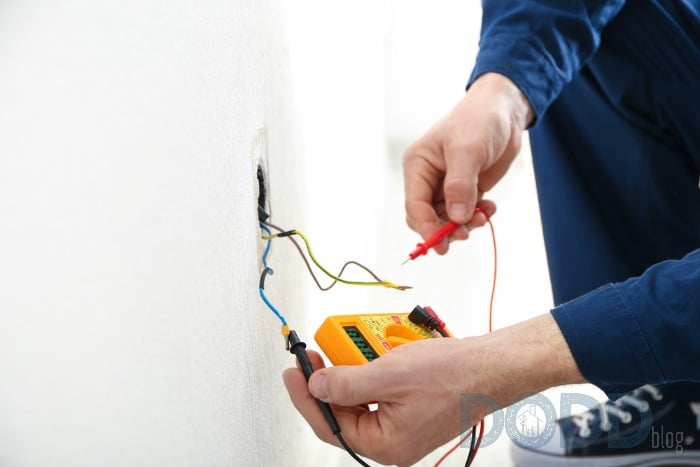Many people want to save time and money by performing their own DIY electrical work that doesn’t need the help of an electrician.

With many appliances and everyday gadgets primarily relying on electricity to work, it’s good to have an element of knowledge on how to look after and maintain these powered products.
DIY or electrician?
If you love getting stuck into DIY, you may think you can fix anything when you put your mind to it. However, it’s important to know when to seek professional help and call an electrician.
Electrical work is regulated across the UK and must comply with Part P of the Building Regulations. These are electrical safety rules first introduced by the Government to ensure fixed electrical installation work in homes must meet specific regulations and requirements.
For instance, the work carried out must be designed and installed to protect people from various risks, including fire and electric shocks.
Ignoring these regulations could result in serious consequences. If you cause damage to your home, regardless of you having home insurance, you wouldn’t be compensated. You may also find yourself in legal trouble.
What DIY electrics can you do yourself?
Change batteries
Many home devices are powered by batteries. It’s always good to keep a fresh supply of different battery types to ensure you’re always well-prepared in case your devices stop working. Button batteries are used in several household items, including TV remotes, car keys and scales.
Health and safety appliances
It’s important to double-check the health and safety appliances around your home. Ensure that all smoke detectors, fire alarms and burglar alarms are all functioning correctly. Don’t forget to check your CO2 detector too, as this is often overlooked.
Lightbulbs
Don’t get left in the dark – always keep a selection of lightbulbs available for when you have a blowout. Double points if you use LED light bulbs to help reduce your energy usage!
Plug sockets and USB ports
Moving and installing plug sockets yourself is completely safe. Many older houses don’t contain a sufficient amount of plugs for modern living, so you may want to install your own. Known as a popular renovation task, you can easily extend a circuit to add an extra socket where it’s needed most.
Fuse box replacement
Installing a modern fuse box can be beneficial for your safety. If you currently have an old one, it’s important to upgrade as this reduces the risk of electric shocks and a potential fire hazard.
Your fuse box is the foundation of your home’s wiring system, so be sure to replace old, deteriorated fuse wires with modern alternatives to ensure the electricity in your home runs smoothly.

